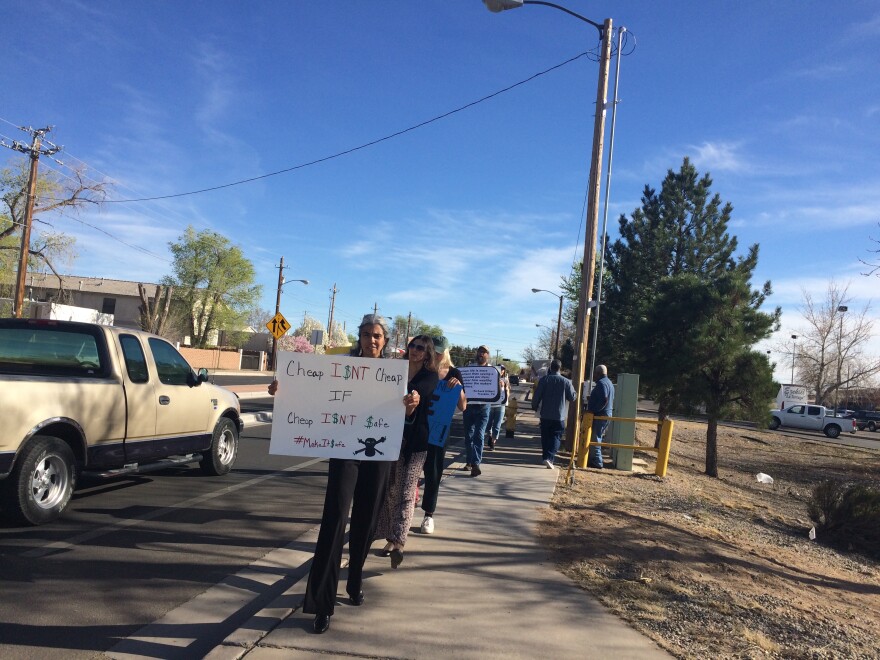Dollar stores are everywhere these days—they’re being built at a record pace, according to industry reports. In some rural communities in this state, you might not see any store except a dollar store. A campaign is calling on these discount chains to make sure products are nontoxic.
The Campaign for Healthier Solutions purchased more than 150 products last year, some from stores in the South Valley near Albuquerque and the International District in the southeast part of the city. Things like earrings, pencil pouches, Spider-Man dogtags … they were all tested. Results showed hazardous chemicals like polyvinylchloride—that’s PVC—in the plastics, phthalates in children’s toys, and products with heavy metals like lead in them.
In all, they say 81 percent of the dollar store items they tested contained at least one hazardous chemical above levels of concern.

On a recent day demonstrators carried bright signs and chanted in front of two dollar stores in the South Valley, right across the street from each other. "What do we want? No toxic products! When do we want it? Now!"
Richard Moore with Los Jardines Institute lives nearby. "We purchased the poster board, the markers that were used for the slogans on the poster board were purchased at these two stores."
He and the demonstrators are not yet calling on customers to boycott dollar stores. They want to keep shopping there. Instead, they’re asking the four major chains to make certain commitments: Identifying concerning chemicals, disclosing those chemicals on packaging, developing a chemical management plan. Other retailers like Walmart and Target do those things, according to the Campaign for Healthier Solutions.

"We care about the workers inside that store that are unboxing a lot of those chemicals and stuff, and we care about us as consumers and as community members here that shop at this store," Moore said.
In statements from the companies, they said the campaign’s claims are unfounded, they stand behind what they sell, and the products they buy from suppliers are safe and meet state and federal guidelines.
We reached out to the Consumer Product Safety Commission, which says there are high standards for chemicals and metals. When there’s a violation, the commission will step in and recall a product.
But Dr. Julia Brody says there are huge gaps in the rules about chemicals in consumer products. She’s the executive director of the Silent Spring Institute in Massachusetts. "In the United States, we really have an innocent-until-proven-guilty approach rather than a better-safe-than-sorry, which I think most families would prefer," she said.
Researchers at the institute study chemicals in everyday environments. She says the United States doesn’t even have regulations for many of the chemicals in consumer goods. "We do end up with a lot of products on the shelf in the store," she explained, "that haven’t been tested for safety or that include chemicals where science is showing that we should be concerned about using them all the time."

KUNM asked Dr. Brody to take a look at the testing conducted by the nontoxic dollar store campaign. She says their results are right in line with what the institute is seeing in many studies that show people are exposed to carcinogens or hormone disrupters that come from consumer products.
"I think most people aren't aware that you can put chemicals into products in the U.S. without testing them first for safety," Brody said.
It’s fair for shoppers to be concerned, she said, and we need better rules in this country to protect public health.
****
Find a map of all the dollar stores in the state
Silent Spring created a smartphone app called Detox Me designed to help people avoid toxic chemicals in products





